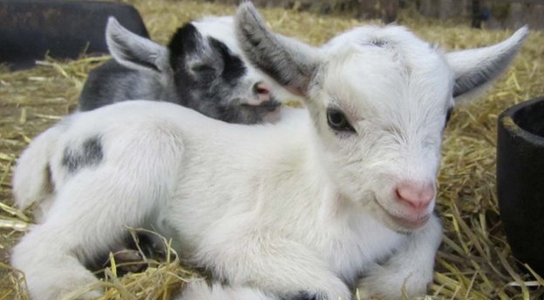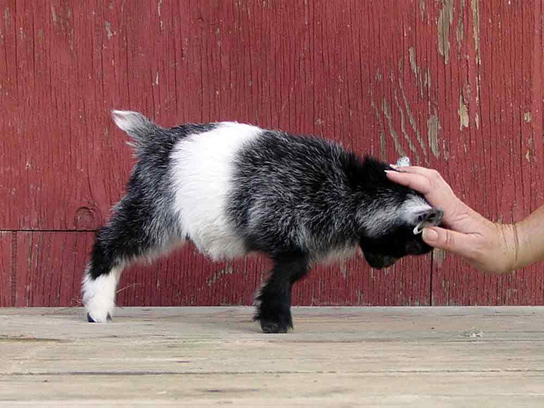
Pygmy goats
The sounds that animals make are determined by their genes, but a new study published in the journal Animal Behaviour shows that pygmy goats (Capra aegagrus hircus) can develop regional accents as they grow older. They join humans, bats, whales, songbirds, and elephants, who all listen and learn vocal cues from their surroundings.
Researchers studied four groups of pygmy goat kids on an English farm, all of which had the same father. They recorded the kids’ bleats at one week and five weeks, which were then analyzed. Kids that were raised in the same group had a tendency to sound similar over time.

Genetically related kids and kids of the same social groups reproduced the same kinds of sounds. This suggests that the goat kids modify their calls over time, to match those of their social surroundings. Goats live in complex social groups that split during the day and come back together at night, which means that it’s important to be able to identify the goats that are part of the original group.
The differences in their vocalizations are enough to allow them to identify outsiders. This could lead to an understanding on how humans evolve and change their speech patterns over time. The existence of vocal plasticity in mammals such as goats reveals a possible early pathway in the evolution of vocal communication state the authors of the study.
Reference: “Social effects on vocal ontogeny in an ungulate, the goat, Capra hircus” by Elodie F. Briefer and Alan G.McElligott, 16 February 2012, Animal Behaviour.
DOI: 10.1016/j.anbehav.2012.01.020









Be the first to comment on "Study Finds Goats Adjust Their Vocalizations to Surroundings"